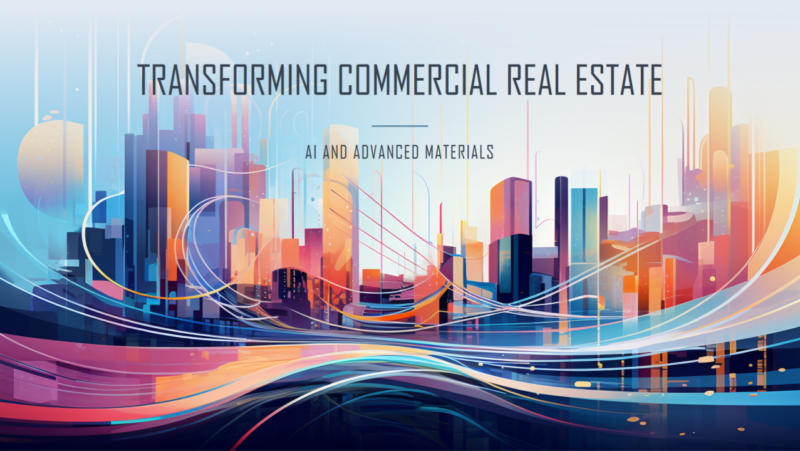
In the ever-evolving world of Commercial Real Estate (CRE), a significant transformation is underway. The convergence of Artificial Intelligence (AI) and advanced materials is reshaping the industry, moving beyond mere structural changes to create more efficient, sustainable, and intelligent environments. Let’s explore how these advancements are revolutionizing CRE.
Advanced Materials in CRE
The seismic shift in materials science heralds a new era for CRE. Innovations like self-healing concrete, smart sensors, and responsive glass are setting unprecedented standards in building quality, durability, and environmental responsiveness. These materials are revolutionizing construction, offering sustainable solutions that significantly boost property value and appeal to eco-conscious investors and tenants.
AI’s Role in CRE Management
AI is transforming CRE operations, shifting the focus from reactive to proactive management. Layer 10, at the forefront of this change, is harnessing AI for sophisticated data analysis, market forecasting, and automation of building systems. This results in more efficient management and operation.
“AI in commercial real estate is not about replacing humans; it’s about augmenting our capabilities to make smarter, faster decisions.”
AI algorithms optimize building energy use, predict maintenance needs, and enhance tenant comfort. This intelligent approach enables operators to anticipate market trends, manage risks effectively, and provide unparalleled experiences to tenants and clients.
Sustainability as the New Norm in CRE
The integration of innovative materials and AI marks a pivotal change in CRE. Sustainable and efficient design is rapidly becoming a requirement rather than a preference. Developers who ignore this trend risk falling behind in a competitive market and facing potential regulatory and financial challenges. Sustainable buildings are no longer a niche market; they represent a growing preference among tenants for environmentally responsible spaces, influencing occupancy rates and property values.
Case Studies: AI in Action
A prime example of AI’s impact in CRE is the “Flex2X” system developed by Grid Edge. This AI-powered system integrates data from a building’s energy management system with additional sources like weather conditions, using AI algorithms for real-time energy optimization. It demonstrates how commercial buildings can become sources of flexible demand in energy markets, enhancing energy efficiency and creating new revenue streams.
In the steel and cement industries, ABB reported significant operational improvements at a steelmaking plant through AI and data analytics. The implementation led to reduced gas flaring and improved electricity procurement forecasts, showcasing AI’s potential to enhance operational efficiency in energy-intensive industries.
Embracing the New Era
As we embrace this new era, it’s clear that AI and advanced materials are revolutionizing the entire CRE industry. The potential for innovation is limitless, offering vast opportunities for growth and development.
How do you see AI and advanced materials shaping the future of CRE?
Share your thoughts and insights with us.
Let’s build tomorrow, today.